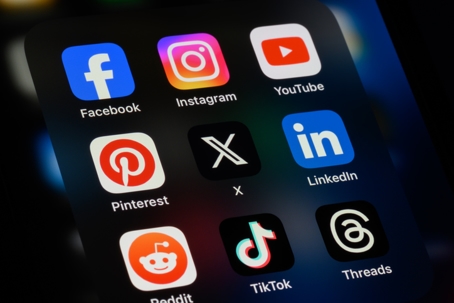In today's digital age, social media has become an integral part of our daily lives, allowing us to connect with friends, share experiences, and express ourselves online. While social media platforms offer a platform for communication and self-expression, they can also inadvertently jeopardize legal matters, particularly personal injury cases. In this article, we explore the potential pitfalls of social media posts and how they can adversely impact your personal injury case.
The Power of Social Media:
Social media platforms such as Facebook, Instagram, Twitter, and TikTok have billions of active users worldwide, making them powerful tools for communication and networking. However, the same features that make social media appealing also pose risks, especially in legal contexts. Posts, photos, comments, and interactions on social media are often accessible to a wide audience, including opposing parties, insurance companies, and legal adversaries.
1. Compromising Privacy and Confidentiality:
One of the primary risks associated with social media is the inadvertent disclosure of sensitive information that could compromise your personal injury case. Posting details about your accident, injuries, medical treatment, or legal proceedings may inadvertently weaken your position or provide ammunition for opposing parties to dispute your claims. Even seemingly innocuous updates or photos can be misconstrued and used against you in court.
2. Undermining Credibility and Damaging Claims:
Social media posts can also undermine your credibility and damage the validity of your personal injury claims. For example, sharing photos or videos that depict you engaging in physical activities or enjoying leisure pursuits may contradict the severity of your alleged injuries. Similarly, posts that suggest reckless behavior or contradict statements made during legal proceedings can cast doubt on your honesty and integrity, weakening your case.
3. Contradicting Medical Evidence and Testimonies:
Inconsistencies between social media posts and medical evidence or testimonies can be particularly damaging to your personal injury case. For instance, if you claim to be incapacitated or in severe pain due to your injuries but post photos or updates that suggest otherwise, it can undermine the credibility of your medical claims. Insurance adjusters and defense attorneys often scour social media for such inconsistencies to discredit plaintiffs and minimize liability.
4. Legal Implications and Admissibility:
In many personal injury cases, social media posts can have significant legal implications and may be admissible as evidence in court. Courts have increasingly allowed social media content to be used as evidence, provided it meets relevance and authenticity criteria. Even posts that are deleted or hidden from public view can be subpoenaed and used against you in legal proceedings. Therefore, it's essential to exercise caution and restraint when posting on social media during pending personal injury cases.

